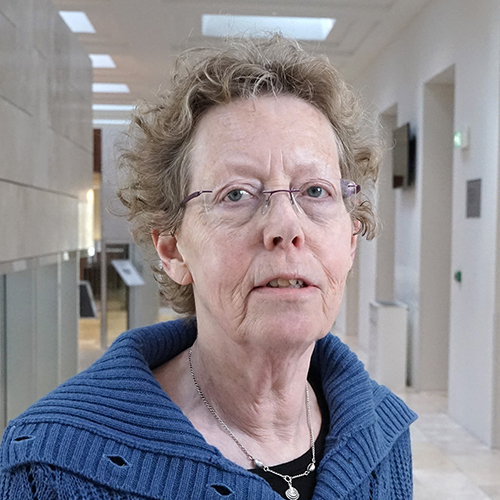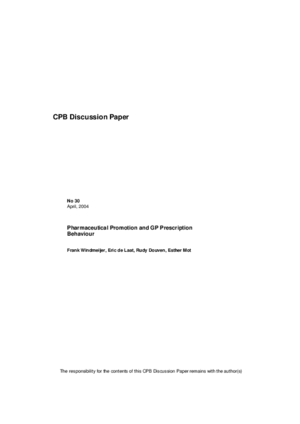Pharmaceutical promotion and GP prescription behaviour
Promotion can be beneficial for society as a means of providing information, but it can also be harmful in the sense that it lowers price sensitivity of doctors and it merely is a means of establishing market share, even when cheaper, therapeutically equivalent drugs are available. A model is estimated that includes interactions of promotion expenditures and prices and that explicitly exploits the panel structure of the data, allowing for drug specific effects and dynamic adjustments, or habit persistence.
The data used are aggregate monthly GP prescriptions per drug together with monthly outlays on drug promotion for the period 1994-1999 for 11 therapeutic markets, covering more than half of the total prescription drug market in the Netherlands. Identification of price effects is obtained by the introduction of the Pharmaceutical Prices Act, which established that Dutch drugs prices became a weighted average of the prices in surrounding countries after June 1996. We conclude that, on average, GP drug price sensitivity is small, but adversely affected by promotion.
Downloads
Authors


